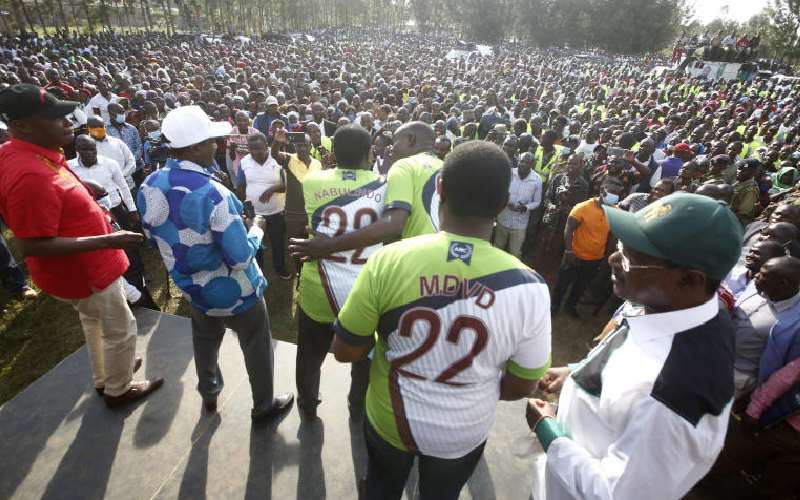×
The Standard e-Paper
Home To Bold Columnists

Ford Kenya party leader Moses Wetangula, ANC party leader Musalia Mudavadi, Matungu ANC Candidate Oscar Nabulindo , Wiper party leader Kalonzo Msyoka and KANU Chairman Gideon Moi , at Bulimbo area in Matungu constituency for a political rally.[Kipsang Joseph,Standard]
With less than 500 days to next General Election, conversation and scheming in political circles is on how to cobble formations and coalitions with enough numbers to win presidential ballot in the first round.